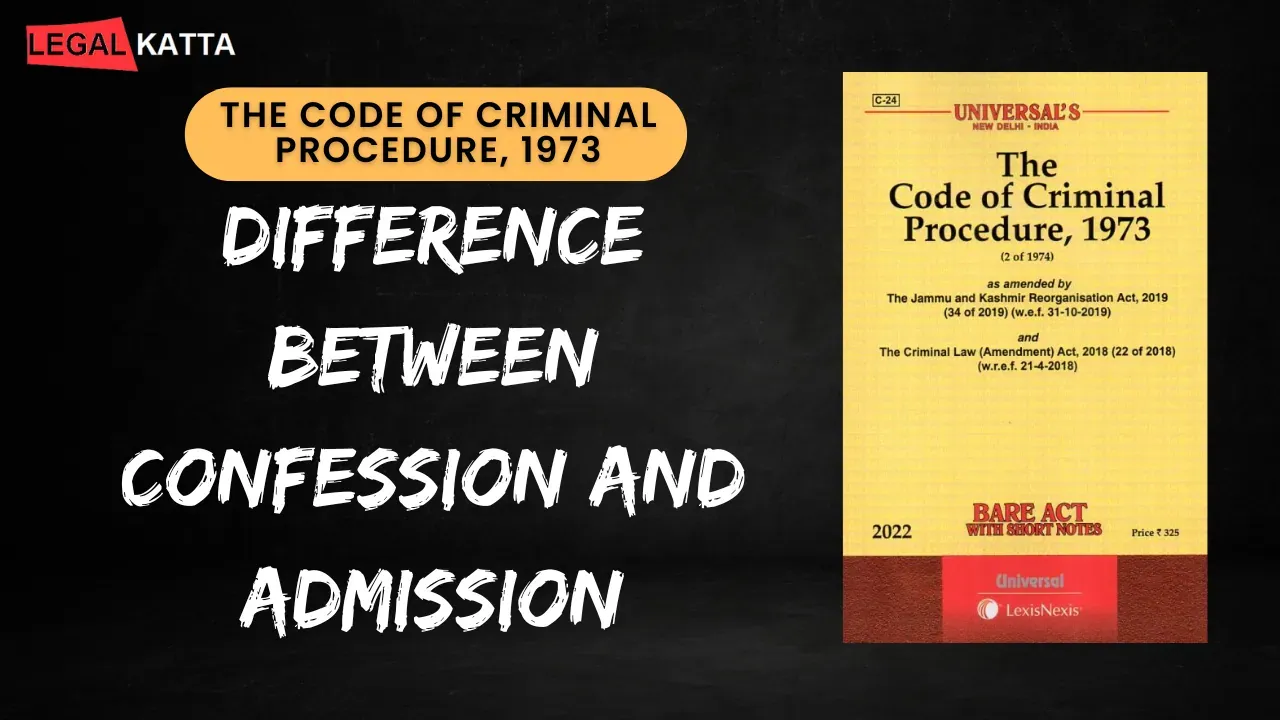 |
| Difference Between Confession and Admission |
Difference Between Confession and Admission
Difference Between Confession and Admission has been discussed in this Article. Understanding the key difference between confession and admission in the Evidence Act is very important.
| Confession | Admission |
| Confession is a format statement made by an accused person before the Magistrate to accept his guilt of a crime. | Admission is a statement suggesting an inference as to any fact in issue or relevant fact. |
| If a statement is made by a person charged with an offence then in the criminal proceeding, it is called as a Confession. | If a statement is made by a person in a Civil court proceeding it will be called an Admission. |
| Confession is not defined in the BSA. | Admission is defined under section 15 of the BSA. |
| Applicable to criminal proceedings only. | Apply to both civil and criminal proceedings. |
| Confession can only be made by the accused person. | Admission can be made by any person. |
| Confession is written or oral which is a direct admission of fact. | Admission is a statement written or oral that gives inference about the liability of the person making an admission. |
| Once a confession is given by the accused, it will always go against him. | Admission may be used on behalf of the person making it. |
| There is a retracted confession, so retraction is possible. | Once admission is made can't be retracted. |
| Confession can be made before the Magistrate. | Admission can be made anywhere including police custody. |
| In confession, it is mandatory that the accused person must admit the guilt of a crime. | In admission, no specific requirements for admission. |
| Confession is viewed as satisfactory proof of guilt. | Admission is not considered conclusive proof. |
Read Also:
